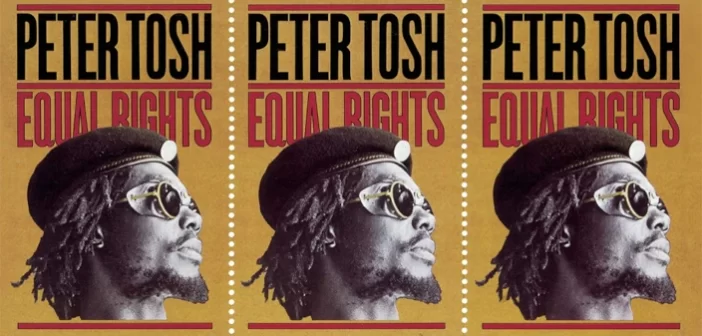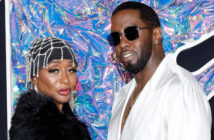On April 28, South African President Cyril Ramaphosa will recognise militant reggae artist Peter Tosh, a founding member of the legendary Wailers group that also included Bob Marley and Bunny Wailer. Tosh will be recognized for his contributions to the country’s independence and culture.
The late Tosh is one of five non-South Africans who will be honoured with the Order of the Companions of OR Tambo, according to an article in apanews.net. This award was established in December 2002 and is given by the president to foreign nationals who have supported, cooperated with, and helped advance the goals and objectives of South Africa.
According to the report, Tosh will be honoured for his contribution to South Africa’s liberation struggle, which he made by “using his musical talent to advance the liberation cause worldwide through incisive and awareness-raising lyrics in his music,” according to director general in the presidency Phindile Baleni.
A well-known pan-Africanist during the time of South Africa’s hated apartheid dictatorship, Tosh was outspoken about his feelings towards the tyrannical regime. He released the militant songs Fight On (1979) and Not Gonna Give It Up (1983) as well as the song Apartheid on his Equal Rights album in 1977.
Tosh took part in the global anti-apartheid movement by performing at anti-apartheid concerts.
Born Winston Hubert McIntosh, Peter Tosh departed the Wailers in 1974 because Island Records CEO Chris Blackwell refused to release his solo album. Tosh had written many of the big songs for the Wailers, including Get Up, Stand Up, 400 Years, and No Sympathy.
According to his Wikipedia entry, “Tosh and Bunny Wailer departed the Wailers due to Blackwell’s harsh treatment of them. With the help of CBS Records and Treasure Isle, Tosh started recording and releasing his debut solo album, Legalise It, in 1976. The album’s title tune quickly gained a following among supporters of marijuana legalisation, fans of reggae music, and Rastafari all around the world, and it was a crowd favourite during Tosh’s concerts.
By performing at anti-apartheid events and expressing his views with songs like “Apartheid” (1977, re-recorded in 1987), “Equal Rights” (1977), “Fight On” (1979), and “Not Gonna Give It Up” (1983), Tosh also contributed to the global opposition to South African apartheid. Peter Tosh appeared to be experiencing a career comeback in 1987. For his final album, No Nuclear War, he received a Grammy Award in 1987 for Best Reggae Performance.
Even now, Peter Tosh’s activism is still a topic of discussion. The International Reggae and World Music Awards (IRAWMA) will present him with a special posthumous honour on Sunday, May 7, in recognition of his contributions to the international legalisation of medical marijuana. Dr. Ephraim Martin, the organization’s president, made this announcement at the beginning of the year.
Death
On September 11, 1987, a three-man gang rode up to Tosh’s residence in Jamaica immediately after he had returned and demanded money. The group did not believe Tosh when he said he did not have any on him. They spent several hours at his house and tortured Tosh in an effort to get money from him. As Tosh’s friends and family visited him over the course of several hours, the gunmen also kidnapped them.
The gunmen grew increasingly frustrated, especially the leader of the thugs, Dennis “Leppo” Lobban, who Tosh had previously made a friend with and attempted to assist in finding employment following a protracted prison sentence. Tosh admitted that he had no money in the house, at which point Lobban and the other gunmen retaliated by indiscriminately firing fire. Tosh was fatally wounded by two headshots. Wilton “Doc” Brown, a herbalist, and Jeff “Free I” Dixon, a DJ, also perished as a result of injuries received during the robbery.
Tosh’s drummer Carlton “Santa” Davis, singer Michael Robinson, and Free I’s wife Yvonne (“Joy”) were among the other members of the household who suffered injuries.
Dennis “Leppo” Lobban turned himself in, and two other men—whom Herman Ricketts would not name—were reportedly questioned.[15] Following his initial guilty plea, Lobban informed the court that he had been drinking with friends during his trial. Due to the use of illegal weaponry, the trial was conducted in a private setting. Ultimately, a jury comprised of four men and eight women found Lobban guilty and gave him the death by hanging verdict. In 1995, his sentence was commuted, although Lobban is still behind bars. Due to insufficient evidence, another suspect was declared not guilty. The identities of the other two shooters remain unknown.
Along with late New Zealand anti-apartheid activist and educator Thomas Oliver Newnham, British poet Christabel Gurney, and German poet Ruth Weiss, American singer-songwriter Tracy Chapman is also being honoured by the South African government with the Order of the Companions of OR Tambo for “her contribution to the fight for freedom by participating in efforts to free Nelson Mandela and raising awareness of human rights violations worldwide.”
Oliver Reginald (OR) Tambo, who is now deceased, was a key figure in the struggle for liberation against apartheid and devoted his life to its overthrow.
According to the South African government, “His leadership of the struggle against apartheid, at an international level, galvanized world opinion against the apartheid regime. His benevolence and personal concern for the plight of freedom-fighters and their conditions in the field endeared him to thousands of liberation fighters”.




